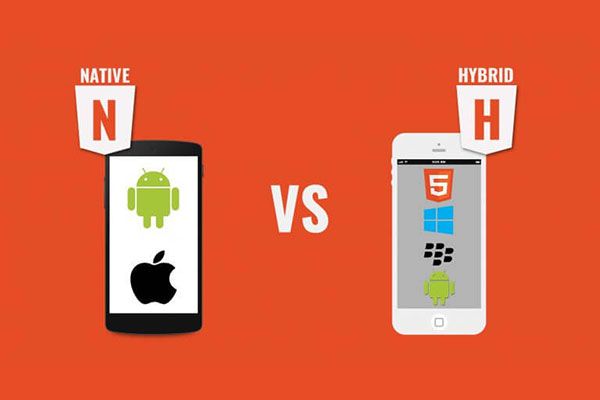Native App vs Hybrid App – Which One Should You Choose?
The usage of mobile apps has been increasing significantly all over the world. People are more connected to their tablets and smartphones as a tool to communicate with others, play games, and even do shopping. Given this scenario, companies and businesses have realized the importance of developing mobile applications in order to be present in people’s lives and meet the needs of their customers.
But how to choose a better solution?
If you also have this doubt, trust me you are not alone. Many people do not know the best option: to develop a native application or a hybrid application. Unfortunately, there is no ready answer. But do not worry! AppZoro is here always with you. We’ve prepared this special content for you to help you choose the best solution for your businesses.
Difference between a native application and a hybrid application
First of all, you need to understand the differences between the development of these two types of mobile applications.
The native apps are designed for use on a specific platform, such as iOS or Android. In this way, the native application is able to exploit the full potential of the platform for which it was created. You can access various device features such as GPS, camera, calendar, contact list, and more.
Remember native applications do not always need the internet for their operation.
Whereas, the development of the hybrid application is somewhat different. The hybrid apps have the native app and web app features, using both codes for their creation.
Thus, the Hybrid app model can use both internet and device features and has the ability to run on different platforms.
However, the hybrid app cannot access device functionality directly, requiring the use of a framework that acts as an intermediary between the application and the device.
When to choose a native app?
The choice of the best solution depends on the evaluation of various factors such as timeline, budget, and audience that will use the application.
Native apps development takes time and is more laborious as you will need to develop one app for each different platform.
In addition, codes cannot be reused, as each platform requires different codes for application development and specialized expertise. All of this makes the cost of the native app much higher.
But if the target audience of the application is more demanding, looking for speed and reliability, the native app is certainly the best option to meet these needs.
When do I choose a hybrid app?
Developing a hybrid app turns out to be faster and cheaper too. The reduction of time compared to native applications is due to the possibility of running the hybrid application on different platforms.
Because of this feature, there is no need to develop the application multiple times to suit different platforms, generating less impact on the budget. Many companies also opt for hybrid app development in situations that do not require high application performance or when the audience is heterogeneous.
In such cases, a more generic solution to be used on varied platforms becomes more advantageous.
Bottom-line: Why you should go Native App
After reviewing all the differences between the native app and hybrid apps, we saw that the choice of the app depends on the consideration of some key factors.
After a good evaluation, the ideal app will be the one that best meets the needs of the company and offers the most appropriate solution.
However, it is necessary to keep in mind that the ultimate goal of your application is a valuable user experience (high-performance) and plan how you want to scale your app in the future.
Performance and Scalability are defining factors when choosing between Native and Hybrid; native applications have better performance and are more scalable than hybrid applications.
If your goal is to provide a valuable and memorable experience, then you should go native; native apps perform faster and are easier to work with due to their built-in features.
Additionally, if you are planning to add more features to your app in order to engage your customers, native applications have access to unlimited library support provided by Apple and Google, while with Hybrid application is very limited, which affects heavily with your app scalability on the long run.
So choose your solution wisely!!

Leave a Comment